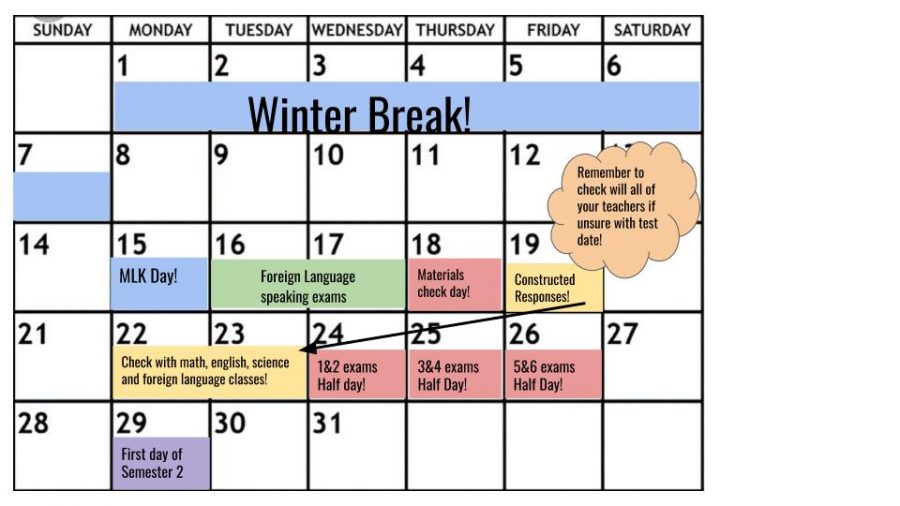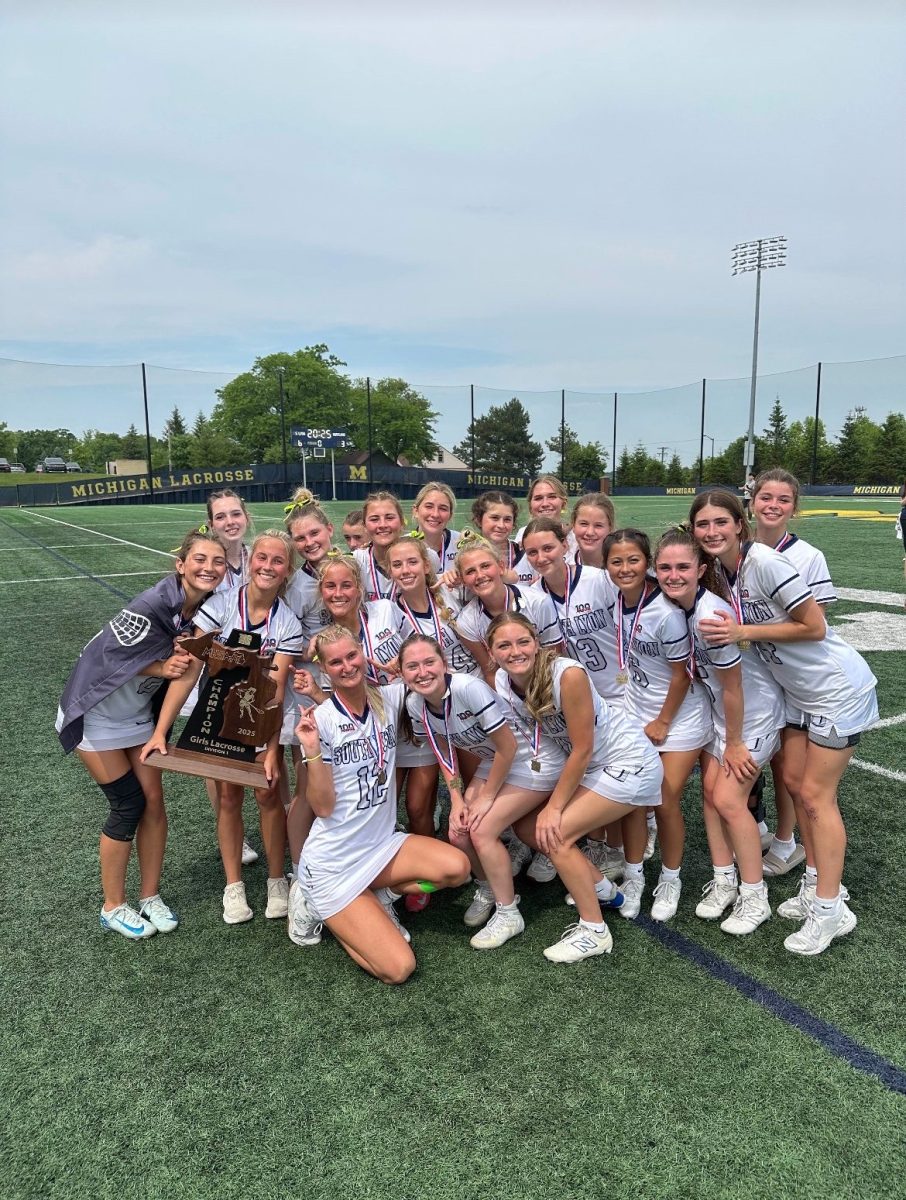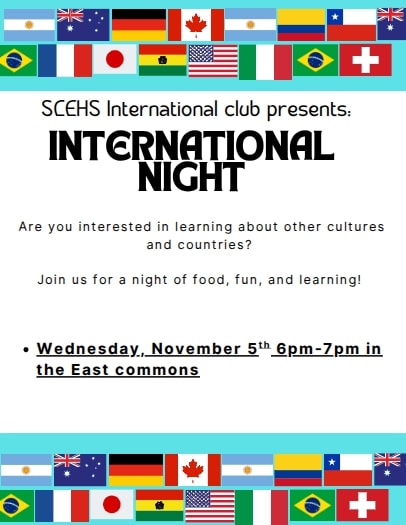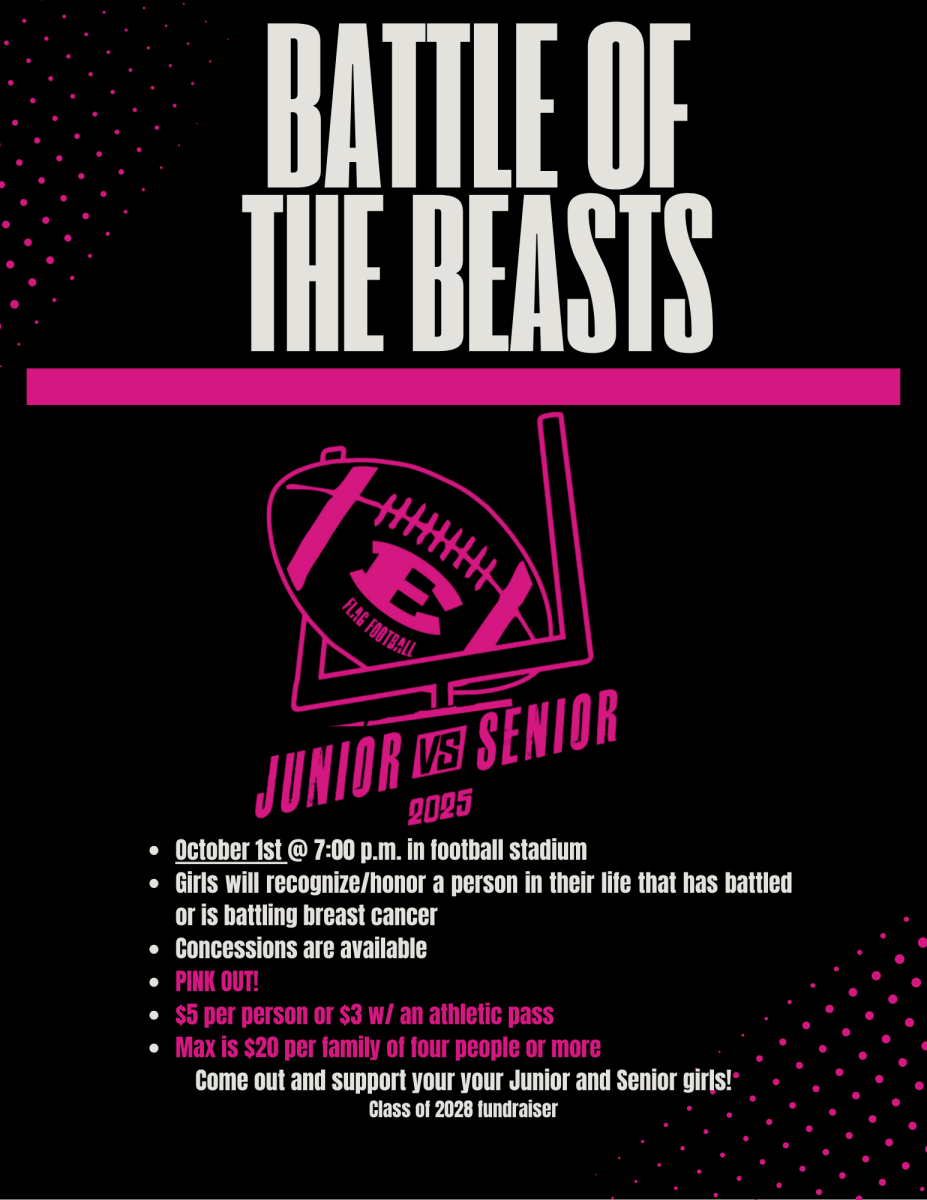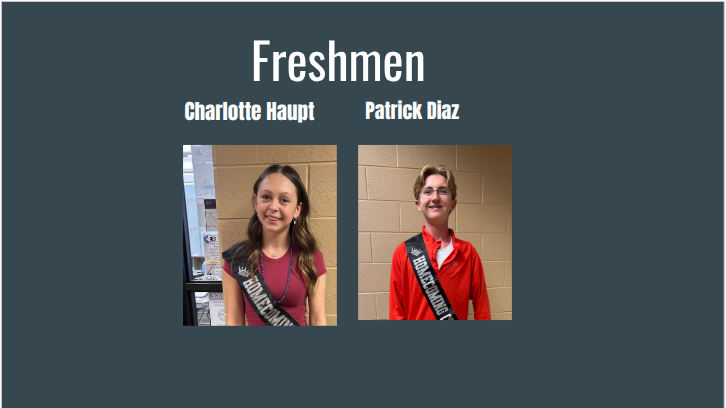By Emily Taliaferro and Isabella Satti
Exams are on January 24,25, and 26. Freshmen kicked off the studying with their annual student/mentor meetup.
While getting ready for exams, the freshman had a Cookies and Cram mentor cougar hour on Tuesday, January 9.
Mrs. Rosenbaum said, “About ⅓ of freshmen, over 100 students attended.” Overall, the freshman are preparing for their exams and taking it seriously. Rosenbaum said, “They know it’s important and to focus on them.”
Freshman Jordan Dashner said, “I attended and I liked taking advantage of the time to prepare.”
Senior mentor leader, Hannah Wartman had great things to say about the Cookies and Cram, “I think the Cookies and Cram was beneficial because the freshmen were able to go to places with their friends and more comfortable environment and got more done.”
Here’s a guide to everything students need to know to help with the midterm exams:
Social Studies-
When it comes to social studies classes, being prepared and organized while studying is key.“Be sure that you do all your reading, it’s very helpful and ask yourself questions as if you were writing the test because it will probably be close to what will be on the test,” says Andrew Stoller, 20 century American history teacher.
With any social studies class, students should try preparing in a way that they learn best so they can remember all the information about each topic that the class has covered during the first semester.
Math-
Unlike the common misconception, studying for math can be helpful. What many don’t know is how to actually study for math. Joseph Hamlin, an Algebra one and two teacher, recommends, “Go over the review packet and make sure everything is comfortable and if I [the student] didn’t know what was going on I’d make sure to ask questions to my teacher and my peers.” Mr. Hamlin also reminded students, “Make sure to get a good night’s rest before you take your test so that your brain is fresh and can recall all the information you have.”
English-
As many know the English exam comes in three main parts; reading comprehension, grammar and writing.
The English classes have a prep day for the writing portion of the exams to get information and gather quotes from novels that were read this semester to answer the prompts.
Sarah Glunt, a ninth grade and tenth grade English teacher, said, “ When it comes to grammar, remembering your grammar rules is a safe bet and if you are struggling with that make sure you get some help before the big day. For the writing, reviewing the concepts for writing an essay and proper structure is the best idea.”
Reading comprehension skills come with practice and patience. Ms. Glunt says, “The biggest thing when it comes to the reading is to remember to read the questions before you start reading the passage. Make sure look through all your answers and do process of elimination and keep a good pace.”
Science-
From biology to chemistry, science is always a stressful exam to study for. The biggest thing is knowing what to review in preparation for the test. Regina Chu, a GeoPhysical science teacher, recommends, “Just going over the problem many times. In science we use a lot of formulas for things so I think knowing the formulas and knowing how you plug things into those formulas is really helpful.” Using this philosophy, Mrs. Chu hints, “Go over the review packet. We spend a lot of time as teachers designing a good final exam that covers all the material that we’ve studied.”
Foreign Language-
Whether students are in Chinese, Japanese, Spanish or German, each needs to take a foreign language exam. For a good grade in a foreign language, studying is essential. Anastasia Gulkewicz, a Spanish one, two, and three teacher, gave some advice, “Repetition! Write and say each sentence, verb, vocabulary word, and other idea over and over again. Also, listening to classical music helps.”
Lowering stress levels-
Midterm exams are a really stressful time for all students. They can cause anxiety and a change in behavior compared to the regular routine. Kristine Eberheart, social worker at East, reminds students of some alternatives to cramming the night before for the exams,“ Prepare ahead of time and prepare for so many minutes for each class, most likely not more than 20 minutes between class, and make sure to take breaks.”
Every student has a different way of studying that works the best for them. Mrs. Eberheart makes some recommendations for students that need to develop a new way of studying:
“ You can always do memory numatics and make acronyms for things you need to memorize. Color coding visually helps people remember by sensory.”
“Restructuring your notes like underlining key words that are important to remember or writing them over again especially for people with processing issues.”
“If you are more of a visual learner, especially for history, get a picture that you can use to study which would help you remember the content that you are studying. If you can visualize the actual photo you are associating a specific topic with you’ll be able to remember all of that information just based on that picture in your head.
Six classes to study for can really take a toll on a student’s life. It’s important to remember to take time for yourself and relax; this will even help you perform better on your exam! Mrs. Eberheart added,“One of the biggest things is to make sure you get enough sleep and drink lots of water. Take care of yourself; make sure you are taking in enough calories and don’t do anything you wouldn’t normally do in preparation for exam day.”
Cheating is definitely not permitted, but there are some other ways that students can boost their scores on the multiple choice tests and keep a calm persona. Mrs. Eberheart recommends,“Narrow your choices to two options and then always guess either the top or the bottom on the whole test and it is said to boost your test score by 30%.”
Besides test taking strategies, Mrs. Eberheart reminds students,“ One helpful thing is to have mints in your pockets. Mints increase mental clarity and help people focus better.”


